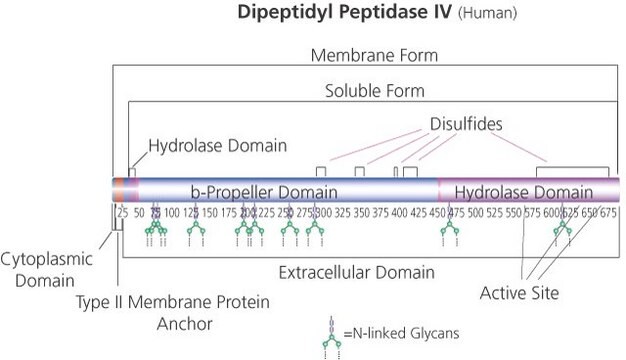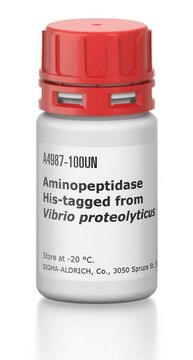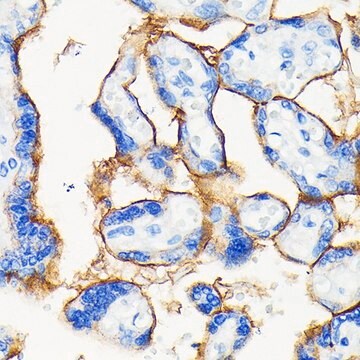D3321
Dipeptidyl Peptidase VII human
recombinant, expressed in Sf9 cells
Sinónimos:
DPP7, Quiescent cell proline dipeptidase
About This Item
Productos recomendados
recombinant
expressed in Sf9 cells
Quality Level
form
solution
specific activity
≥1,500 units/μg protein
≥1500 units/μg protein
mol wt
89.1 kDa
relevant disease(s)
diabetes; cardiovascular diseases
shipped in
dry ice
storage temp.
−70°C
Application
Biochem/physiol Actions
Physical properties
Unit Definition
Physical form
signalword
Danger
hcodes
Hazard Classifications
Eye Dam. 1 - Repr. 1B - Skin Corr. 1C
Storage Class
6.1C - Combustible acute toxic Cat.3 / toxic compounds or compounds which causing chronic effects
wgk_germany
WGK 2
Certificados de análisis (COA)
Busque Certificados de análisis (COA) introduciendo el número de lote del producto. Los números de lote se encuentran en la etiqueta del producto después de las palabras «Lot» o «Batch»
¿Ya tiene este producto?
Encuentre la documentación para los productos que ha comprado recientemente en la Biblioteca de documentos.
Nuestro equipo de científicos tiene experiencia en todas las áreas de investigación: Ciencias de la vida, Ciencia de los materiales, Síntesis química, Cromatografía, Analítica y muchas otras.
Póngase en contacto con el Servicio técnico









